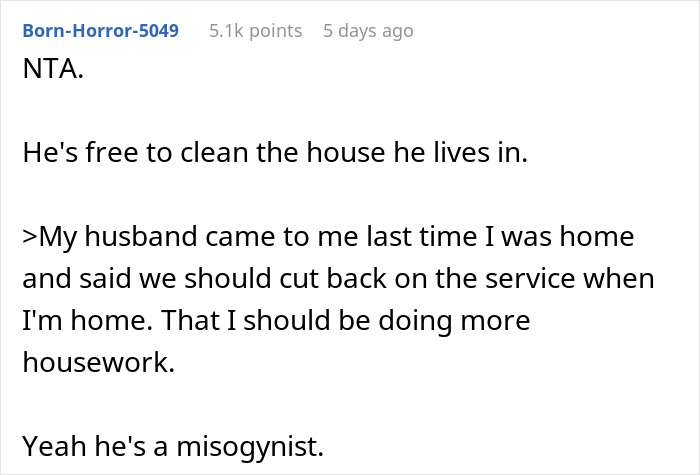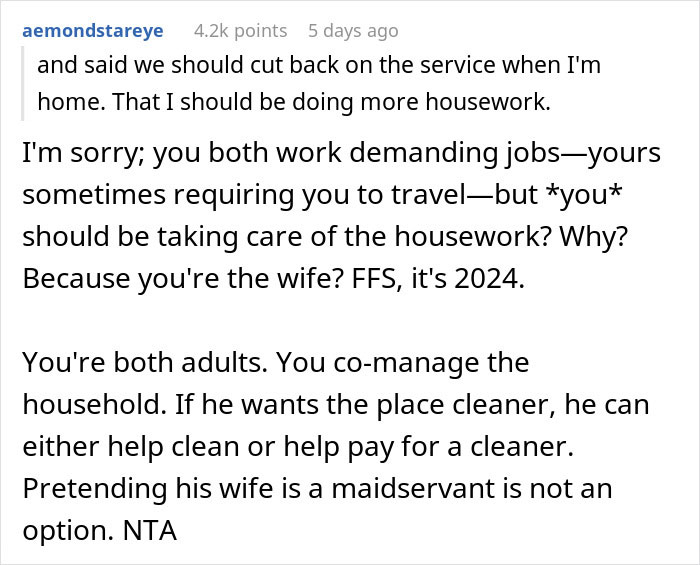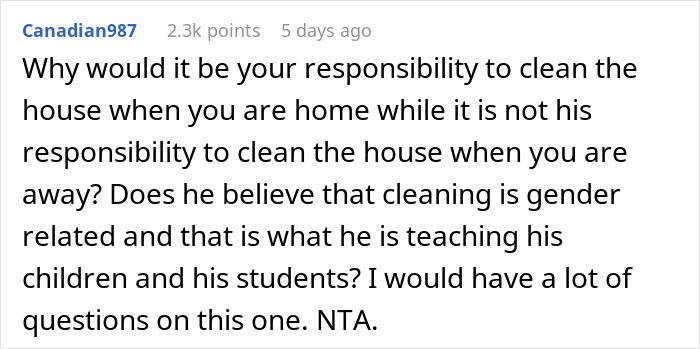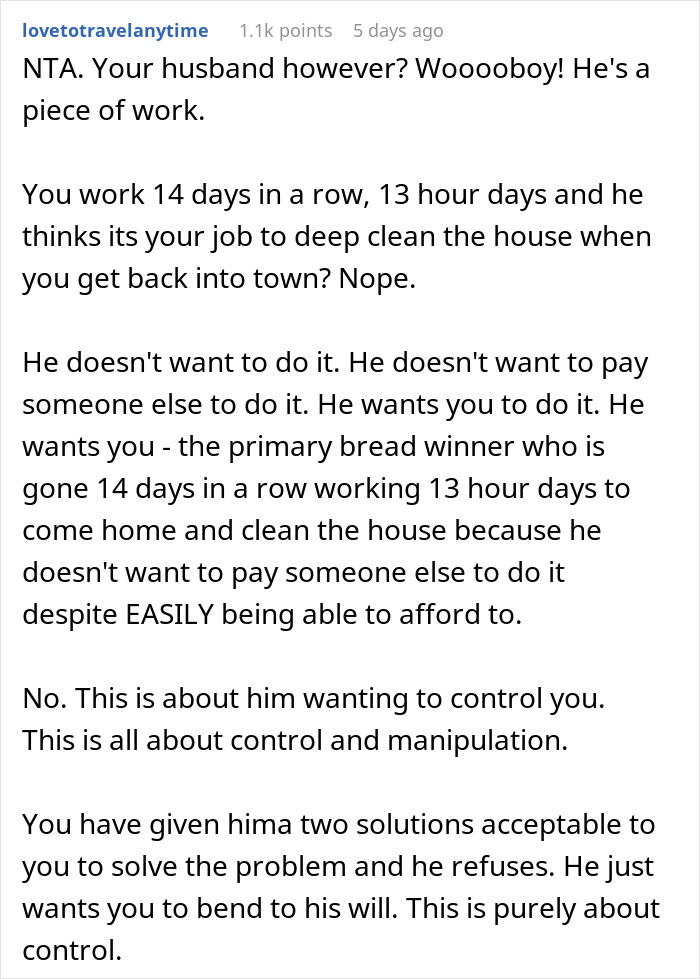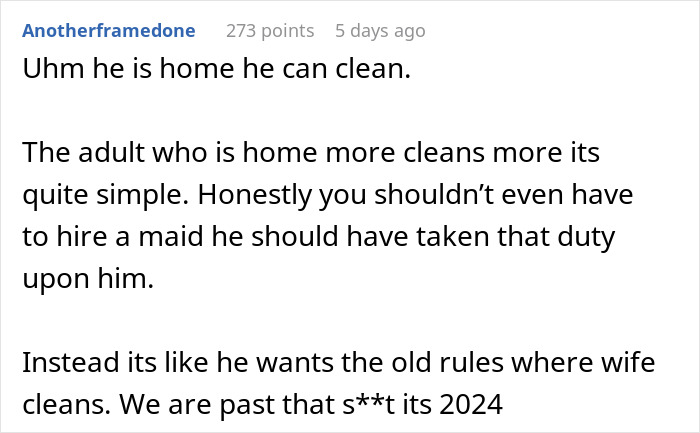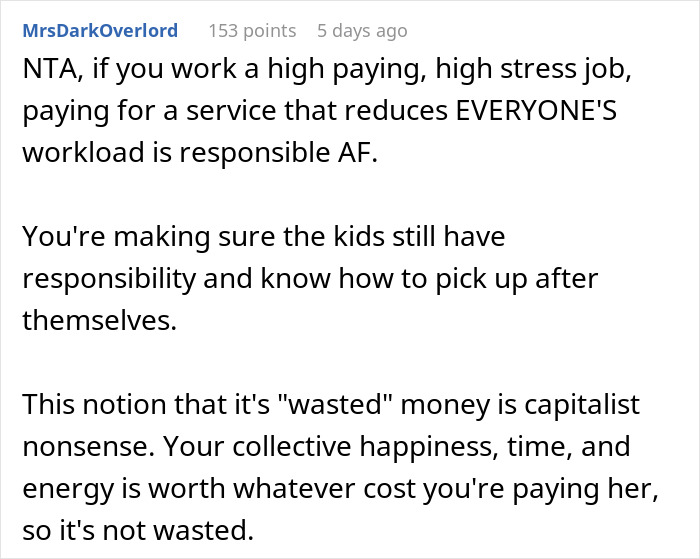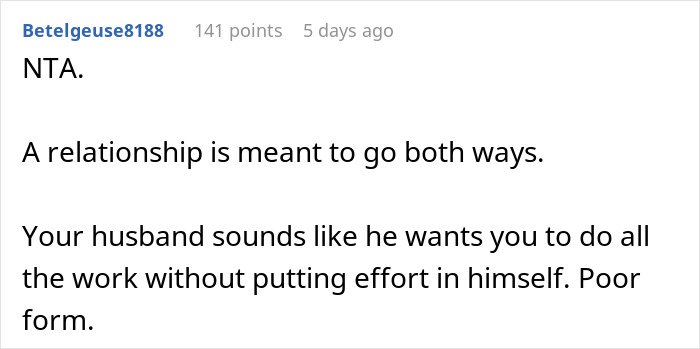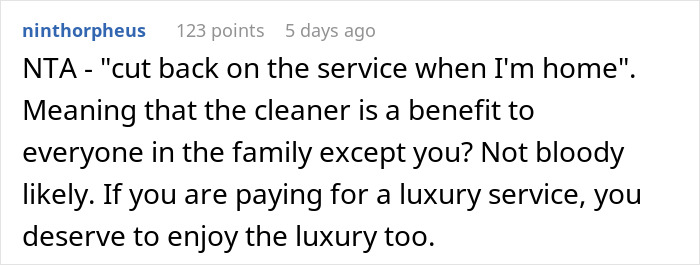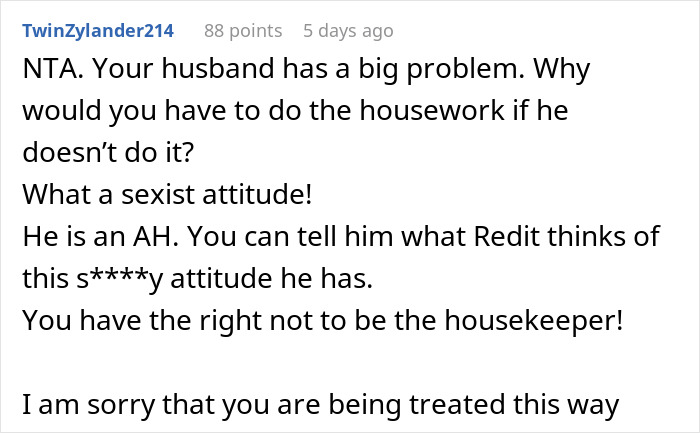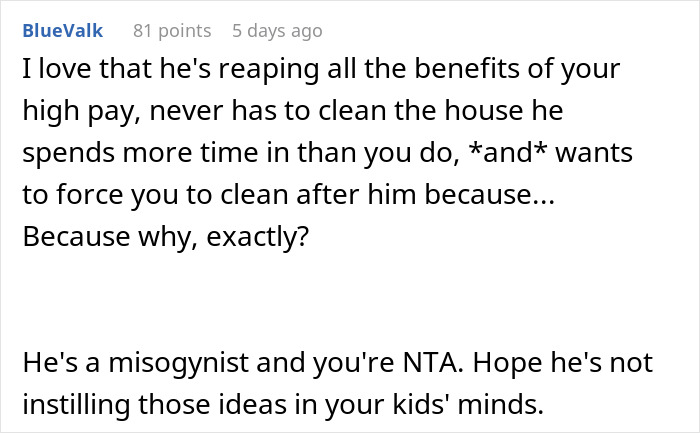Taking care of chores after a long day at work is something few people look forward to; and redditor ‘Maleficent-Credit202’ wasn’t one of them.
The netizen asked fellow redditors if she was a jerk for telling her husband to match her hourly rate at work if he wants her to do more housework. That was because he didn’t like her paying for a cleaning lady, but didn’t take proper care of the household himself, either. Scroll down for the full story below.
Below you will also find Bored Panda’s interview with clinical psychologist and author of the book and workbook The Power of Two: Secrets to a Strong & Loving Marriage, Susan Heitler, PhD, who was kind enough to answer a few of our questions.
Work is typically tiresome enough to make people dread the thought of doing chores alone

Image credits: seventyfourimages (not the actual photo)
This redditor’s husband wanted her to do more housework despite the long hours at work


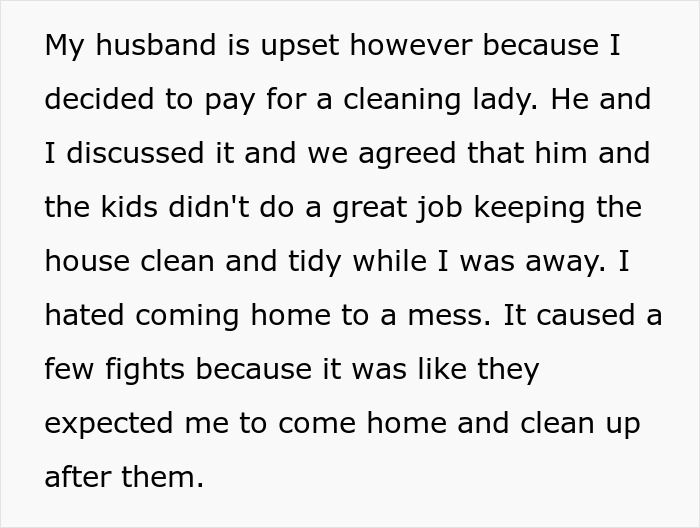

Image credits: SHVETS production (not the actual photo)
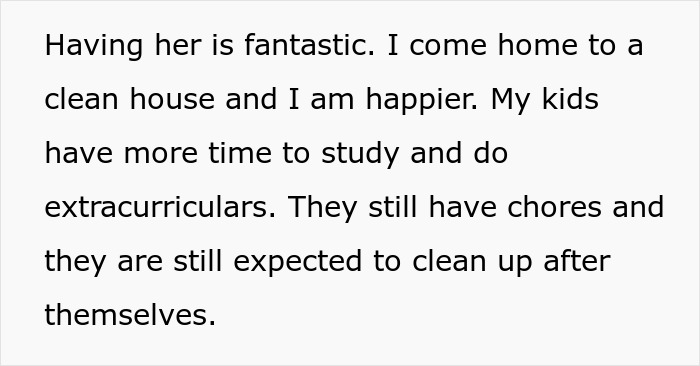
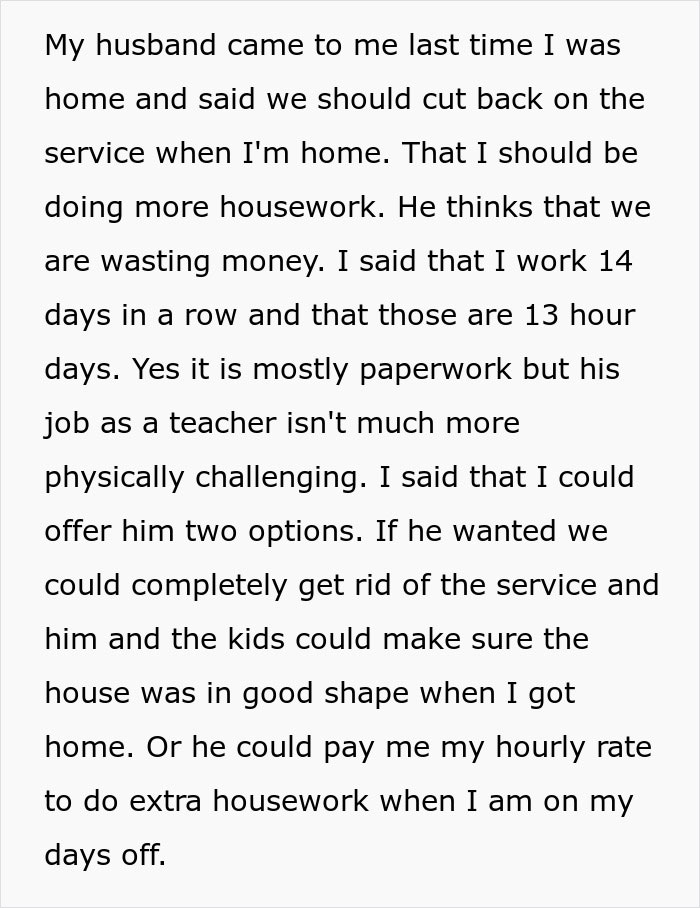

Image credits: Maleficent-Credit202
Men and women tend to view their input in regards to household chores differently
Needless to say, sharing the workload, whatever it is, makes things easier to tackle, rather than one person trying to conquer them all; and this clearly goes for chores, too. Be that as it may, when it comes to taking care of the household, the gender gap persists.
According to Pew Research Center’s data from 2020, married or cohabiting people in opposite-sex relationships tend to disagree on who does more around the house. The majority of women—nearly six-in-ten of them—believe that they do more chores than their partners, while only 6% agree that it’s the latter who does more.
In the meantime, nearly half of their male counterparts believe that the tasks are shared equally among both partners. Out of the rest, 20% say it’s them who take care of more chores, while 34% admit that it’s their partner who tends to the home more often.

Image credits: Jason Briscoe/Unsplash (not the actual photo)
Expecting a partner to take care of certain matters might eventually cause resentment
Discussing the role chores play in regards to people’s relationships, clinical psychologist Susan Heitler emphasized that a clean and orderly home makes the most comfortable context for a relaxed and loving family. As for who does the cleaning and picking up, the expert pointed out that three concerns usually arise: Does the division of labor feel fair? How was the division accomplished? And does the division result in feeling doable or create overload?
Expanding on the first of the three, the expert pointed out that if the division of labor does not feel fair, it’s best to talk about it and change the plan. As for the second, she suggested paying attention to whether the division feels voluntary or forced. “One partner telling the other what to do is a recipe for tensions and resentments,” she suggested.
“If ‘I expect you to…’ is how the work assignments were doled out, that’s a powering-over strategy that’s quite likely to invite resentment,” Heitler continued. “Resentment invites withholding of affection and squelching of romantic feelings. Cooperation, by contrast, invites appreciation and affection, both of which make fertile grounds for the blossoming of romance.”
Sharing the chores equally seems to be the best arrangement
According to Dr. Heitler, if chores feel forced on either spouse, best to do a re-do. “Let each partner choose what they are willing to take on. Then figure out what to do about the rest, including who you might be able to hire if that is an option. Hiring high schoolers, for instance, can be inexpensive for you and a great way to give a job to a needy teen.
“Another option: declare certain times as family-work times, put on upbeat music, and everyone in the family then works together until the work is done,” she added.
Research on men and women’s roles in egalitarian relationships found that sharing housework equally seems to be the most mutually beneficial option. While that might be the best-case scenario, it’s not always easy to come to a consensus between partners.
“One solution is to begin by making a list together of what needs to be done,” Heitler suggested. “Each partner then volunteers for what they are willing to sign up for from the list. As for what’s left, laugh, and then brainstorm together. Hire someone? Have the kids do it? Do it together? Take turns?
“The key is the laughing,” she emphasized. “A friendly tone as you talk invites generosity. A relaxed tone enhances creative thinking. Affection beats adversarial talking every time.”
Unfortunately, sometimes divvying up doesn’t reap the results one had hoped for; in the OP’s case, for instance, she and her husband both agreed that the latter and the kids didn’t do a great job keeping the house clean and tidy. That’s why she eventually hired a cleaning lady and told the husband that if he wanted her to take care of the chores instead, he would have to match his wife’s hourly rate at work. Fellow redditors in the comments let the OP know that taking such a stance didn’t make her the jerk in their eyes.

Image credits: Marek Studzinski/Unsplash (not the actual photo)
Fellow redditors didn’t think that the OP was a jerk in this situation
